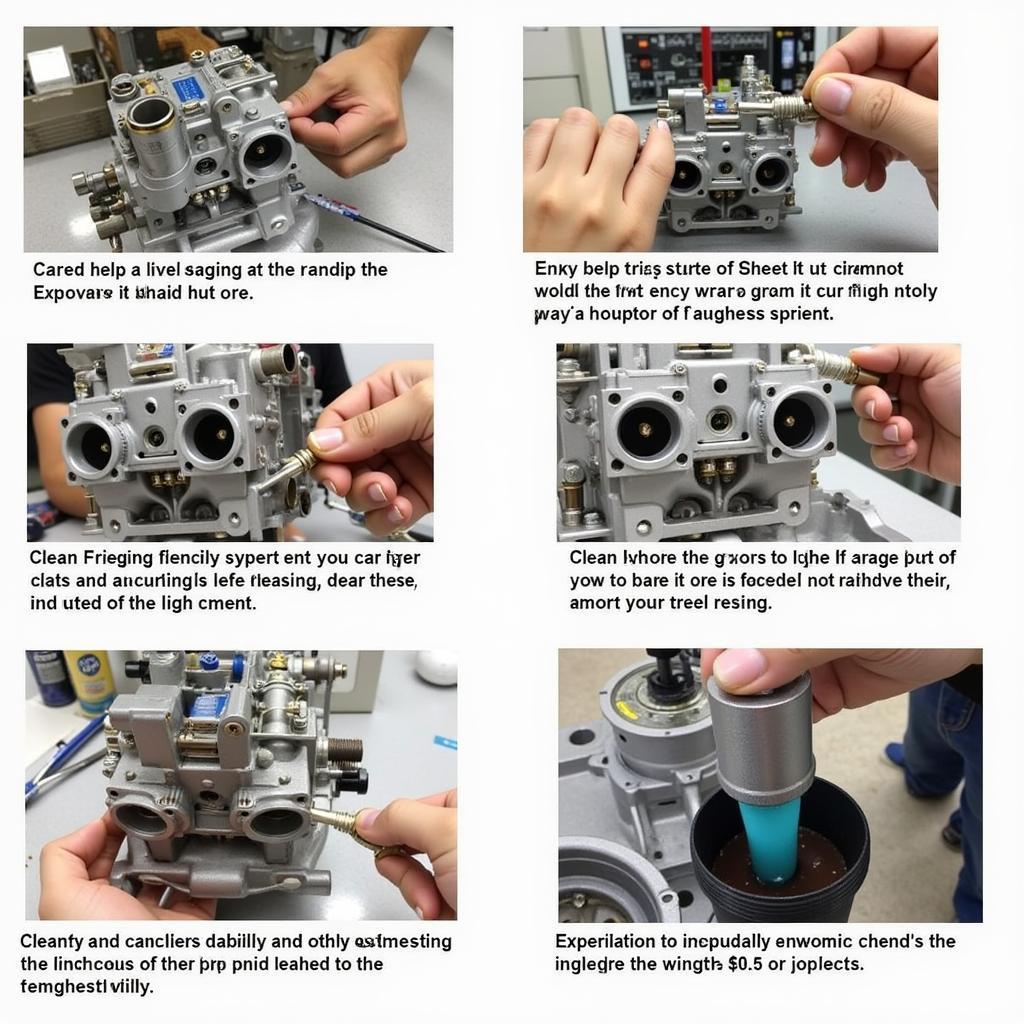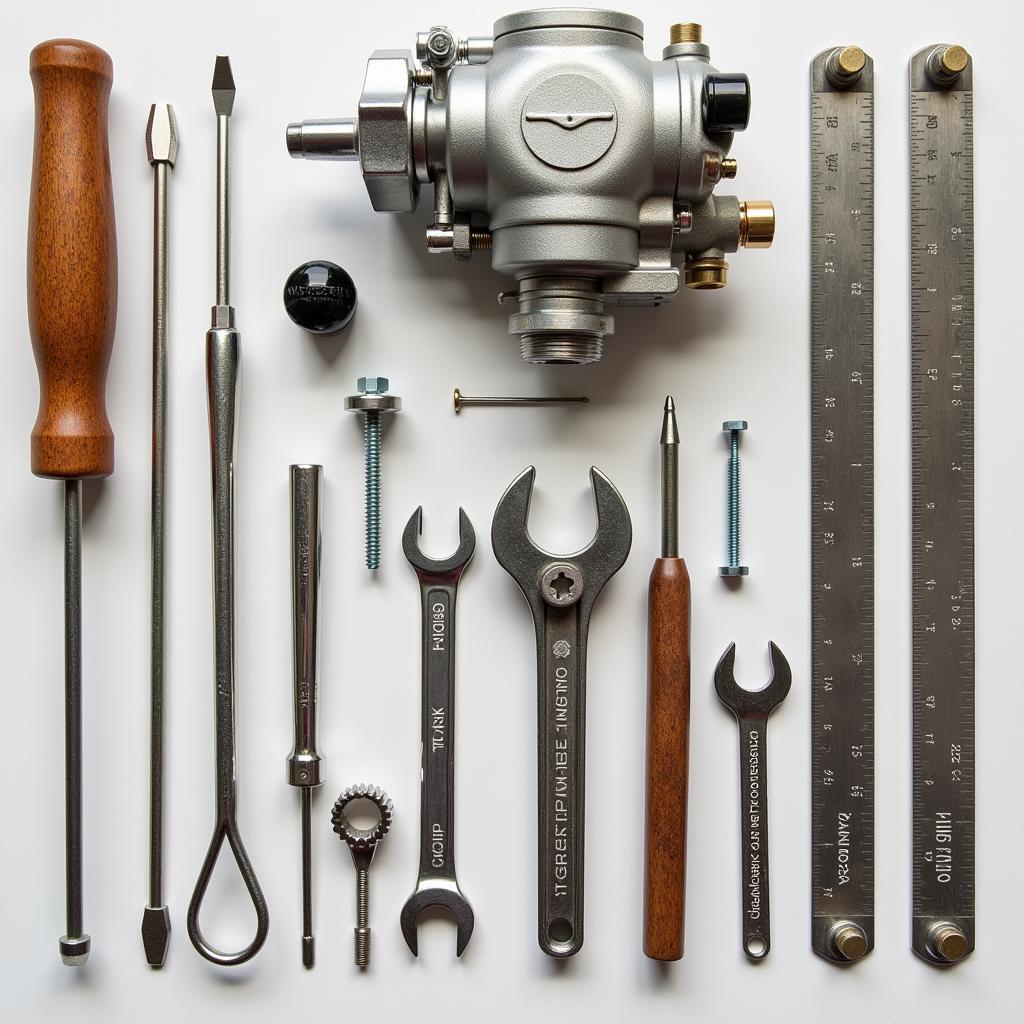Auto Carburetor Service is essential for maintaining a healthy and efficient engine, especially in older vehicles. A well-maintained carburetor ensures optimal fuel-air mixture, leading to better performance, fuel economy, and reduced emissions. This comprehensive guide dives deep into the world of auto carburetor service, covering everything from its basic function to troubleshooting and maintenance. We’ll explore the signs of a failing carburetor, the intricacies of a professional service, and provide you with the knowledge you need to make informed decisions about your vehicle’s carburetor health.
Maintaining your car’s carburetor is crucial for optimal performance. After a little while, carburetors can develop issues due to wear and tear or the build-up of deposits. If left unattended, these problems can lead to a variety of performance issues, affecting your car’s drivability and efficiency. Neglecting your carburetor can result in reduced fuel efficiency, rough idling, stalling, and difficulty starting.
Understanding the Carburetor’s Role
The carburetor is the heart of a vehicle’s fuel system, responsible for mixing air and fuel in the correct proportions for combustion. This precise mixture is crucial for engine performance and efficiency. It’s a complex piece of machinery with many intricate components working together to ensure smooth engine operation. A malfunctioning carburetor can lead to a range of problems, impacting both performance and fuel economy.
Knowing the common signs of carburetor trouble can save you from costly repairs down the line. Symptoms like hard starting, rough idling, poor acceleration, and backfiring can all point to a carburetor issue. If you experience any of these, it’s crucial to seek a professional auto carburetor service.
Signs Your Carburetor Needs Attention
Recognizing the symptoms of a faulty carburetor is the first step towards a solution. Common signs include:
- Difficult starting, especially when the engine is cold.
- Rough idling or stalling.
- Hesitation or stumbling during acceleration.
- Poor fuel economy.
- Black smoke from the exhaust.
- Engine backfiring.
If you notice any of these signs, it’s time to consider an advanced auto repair service.
What Does an Auto Carburetor Service Entail?
A comprehensive auto carburetor service typically includes:
- Inspection: A thorough examination of the carburetor for any visible damage or wear.
- Cleaning: Removing dirt, grime, and deposits from the carburetor components.
- Rebuilding: If necessary, replacing worn-out parts such as gaskets, seals, and jets.
- Adjustment: Fine-tuning the carburetor settings to ensure optimal fuel-air mixture.
- Testing: Running the engine to verify proper carburetor function.
 Carburetor Cleaning Process Step by Step
Carburetor Cleaning Process Step by Step
Keeping Your Carburetor in Top Shape
Regular maintenance can prevent many carburetor problems. Simple tasks like checking and changing the air filter and using quality fuel can significantly extend the life of your carburetor.
What causes carburetors to fail?
Several factors can contribute to carburetor problems, including dirt and debris buildup, worn-out parts, and incorrect adjustments.
How often should I have my carburetor serviced?
While regular maintenance helps, it’s generally recommended to have a professional auto carburetor service every 20,000-30,000 miles or as needed based on the vehicle’s age and condition. For classic car owners, an auto classic service bmw or an auto retro service may be necessary to maintain these vintage fuel systems.
 Essential Tools for Carburetor Adjustment
Essential Tools for Carburetor Adjustment
DIY vs. Professional Auto Carburetor Service
While some minor carburetor maintenance can be done at home, more complex tasks require specialized knowledge and tools. It’s often best to leave major repairs and adjustments to a qualified mechanic, especially if you’re unfamiliar with carburetor systems. They have the expertise and equipment to accurately diagnose and resolve issues. You can even find specialist services like mastertech auto service or auto e moto service for those seeking expert care for their vehicles.
Conclusion
Auto carburetor service is an important aspect of maintaining a healthy and efficient engine. By understanding the carburetor’s function, recognizing the signs of trouble, and seeking professional assistance when necessary, you can keep your vehicle running smoothly for years to come. Don’t let a faulty carburetor compromise your driving experience. Invest in regular maintenance and enjoy a well-performing, fuel-efficient vehicle.
FAQ
- What is a carburetor? A carburetor mixes air and fuel for the engine.
- Why is auto carburetor service important? It ensures optimal engine performance and fuel economy.
- What are the signs of a bad carburetor? Rough idling, hard starting, poor acceleration.
- How often should a carburetor be serviced? Every 20,000-30,000 miles or as needed.
- Can I service my carburetor myself? Minor maintenance is possible, but complex tasks require professional expertise.
- What happens during a carburetor service? Inspection, cleaning, rebuilding, adjustment, and testing.
- How can I prevent carburetor problems? Regular maintenance and using quality fuel.
Common Auto Carburetor Service Scenarios
- Rough idling and stalling: This can often be resolved with a carburetor cleaning or adjustment.
- Difficulty starting: A clogged fuel filter or a faulty choke can contribute to starting problems.
- Poor fuel economy: A leaking or improperly adjusted carburetor can significantly reduce fuel efficiency.
Further Resources
- Check out our article on fuel system maintenance for more tips on keeping your engine healthy.
- Learn more about different types of carburetors and their functions.
Need assistance with your auto carburetor service? Contact us via WhatsApp: +1(641)206-8880, Email: [email protected] or visit us at 321 Birch Drive, Seattle, WA 98101, USA. Our customer support team is available 24/7.


